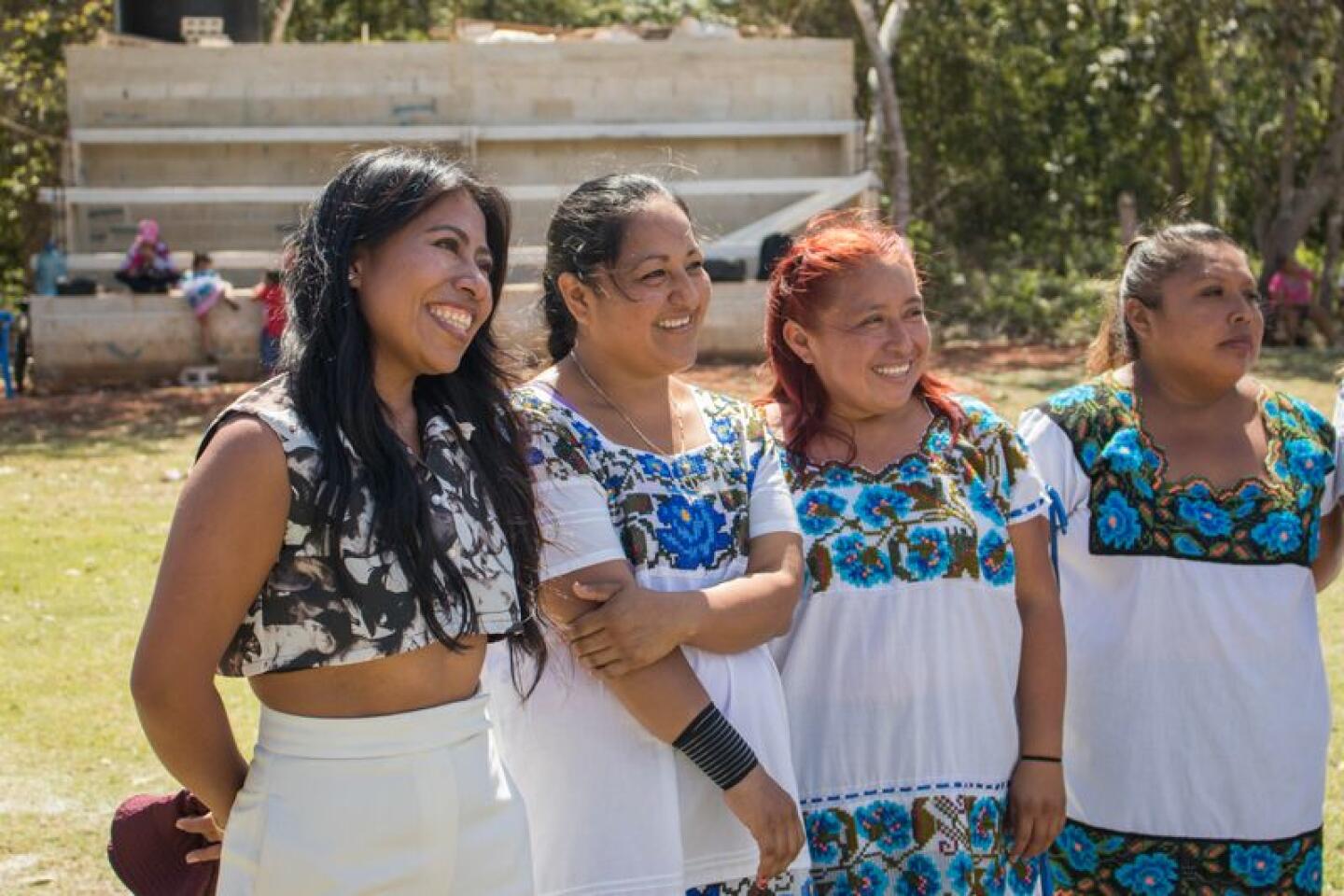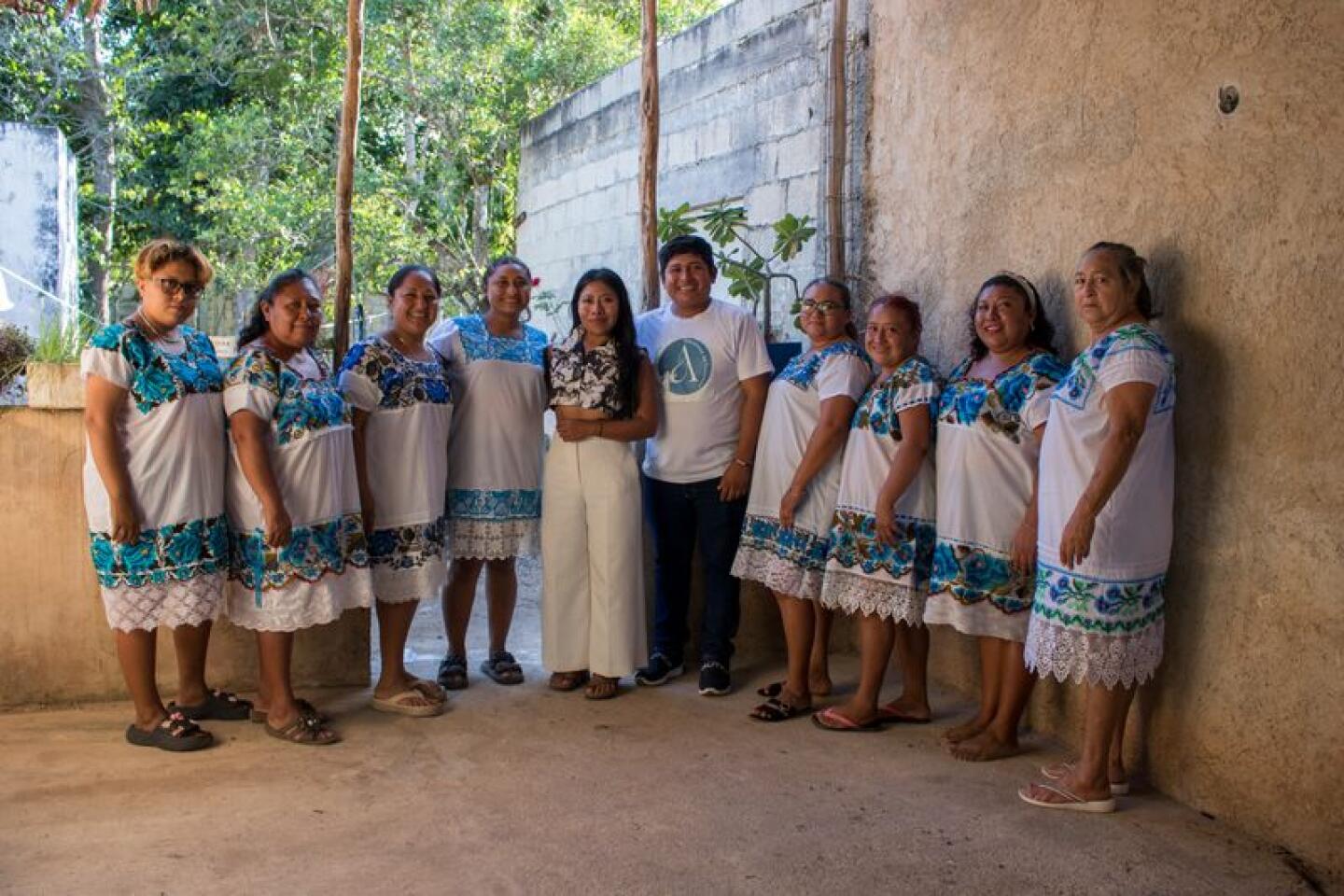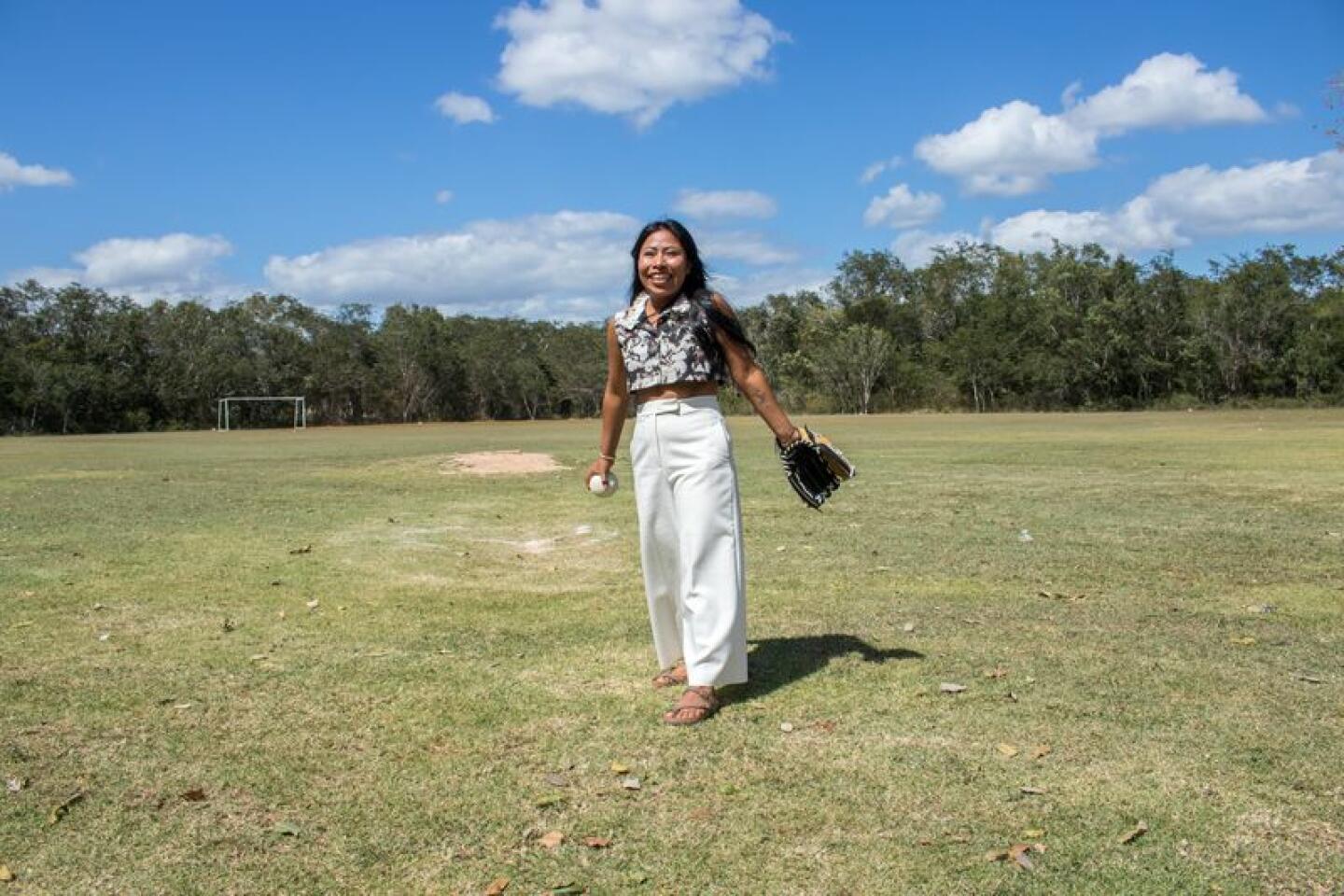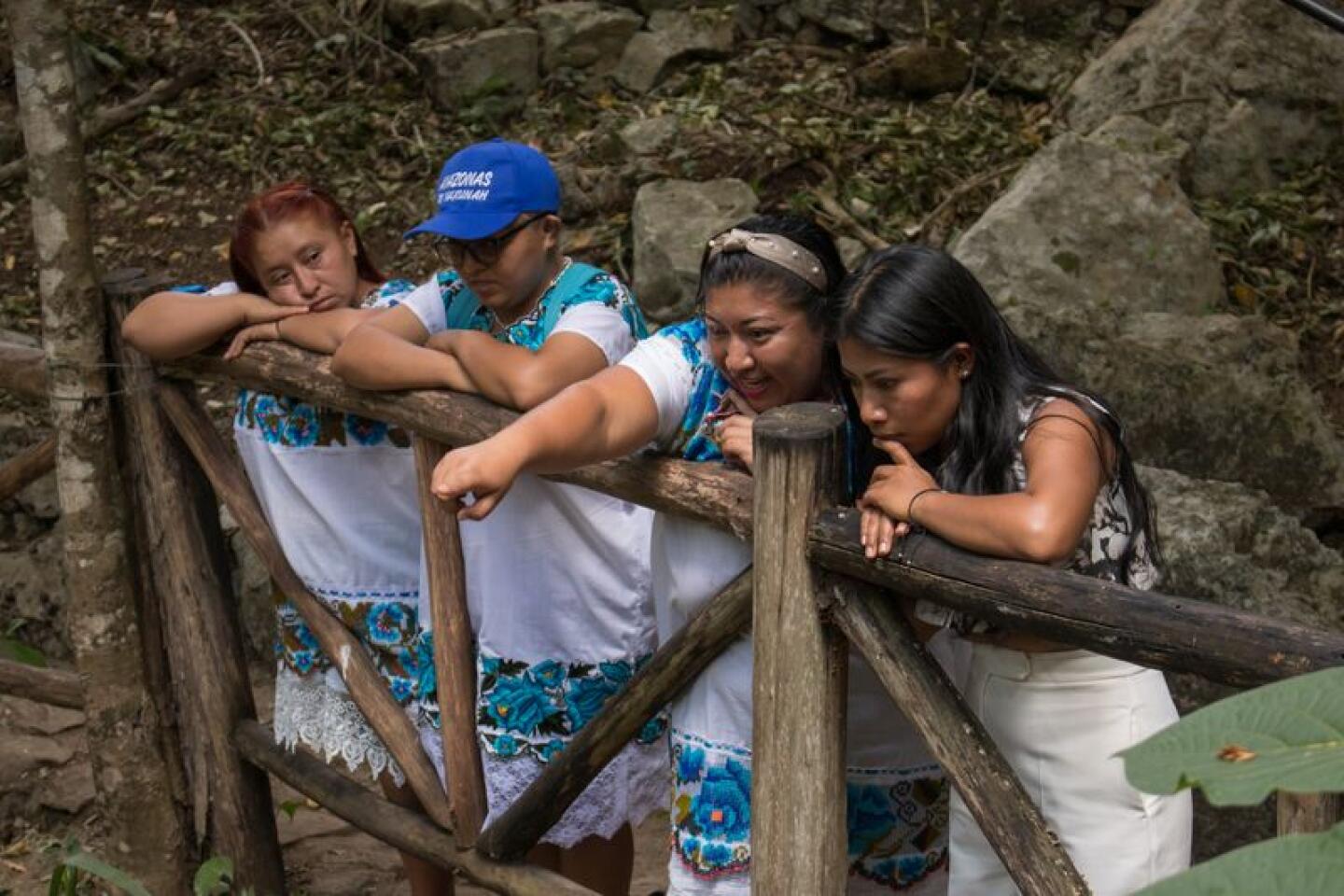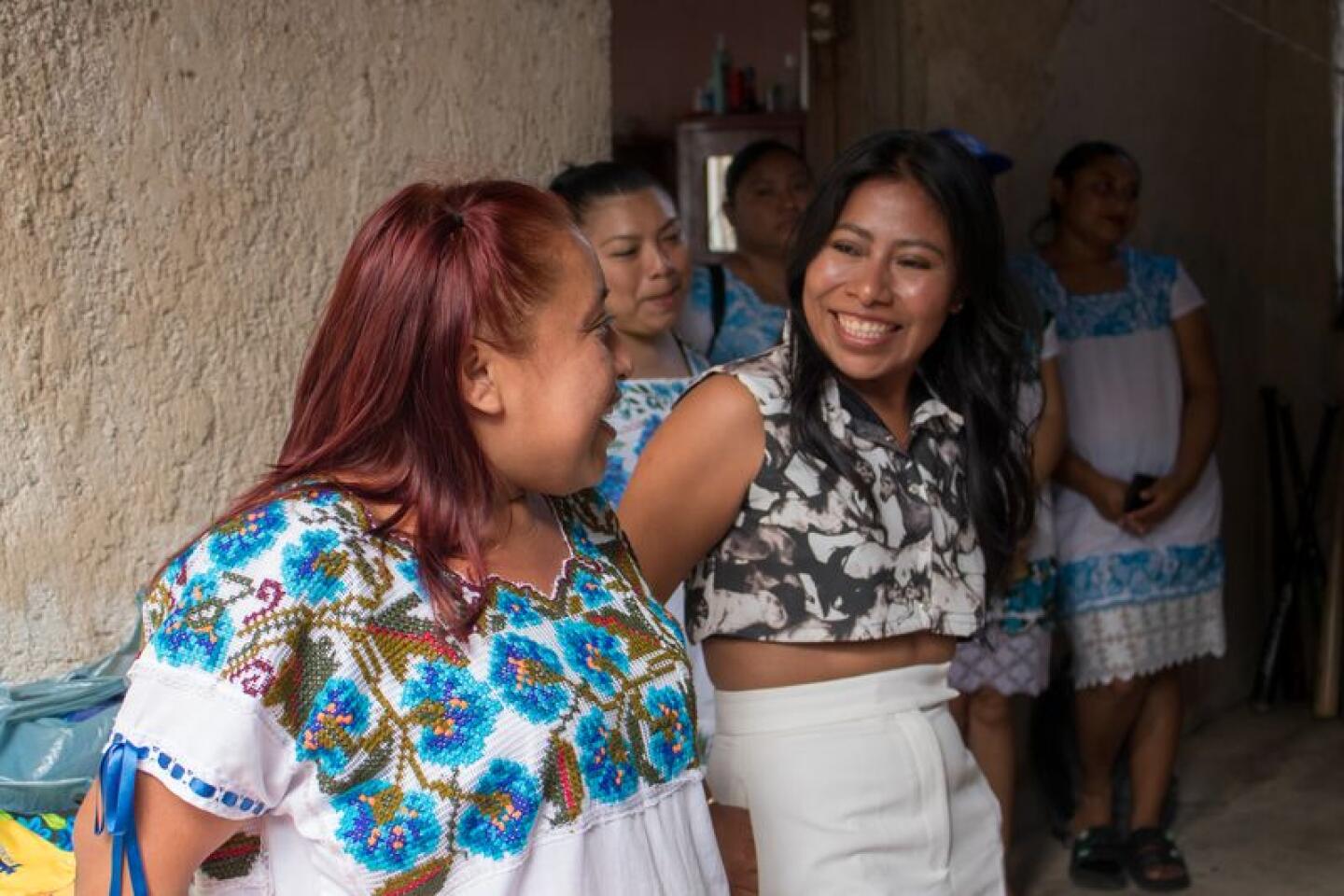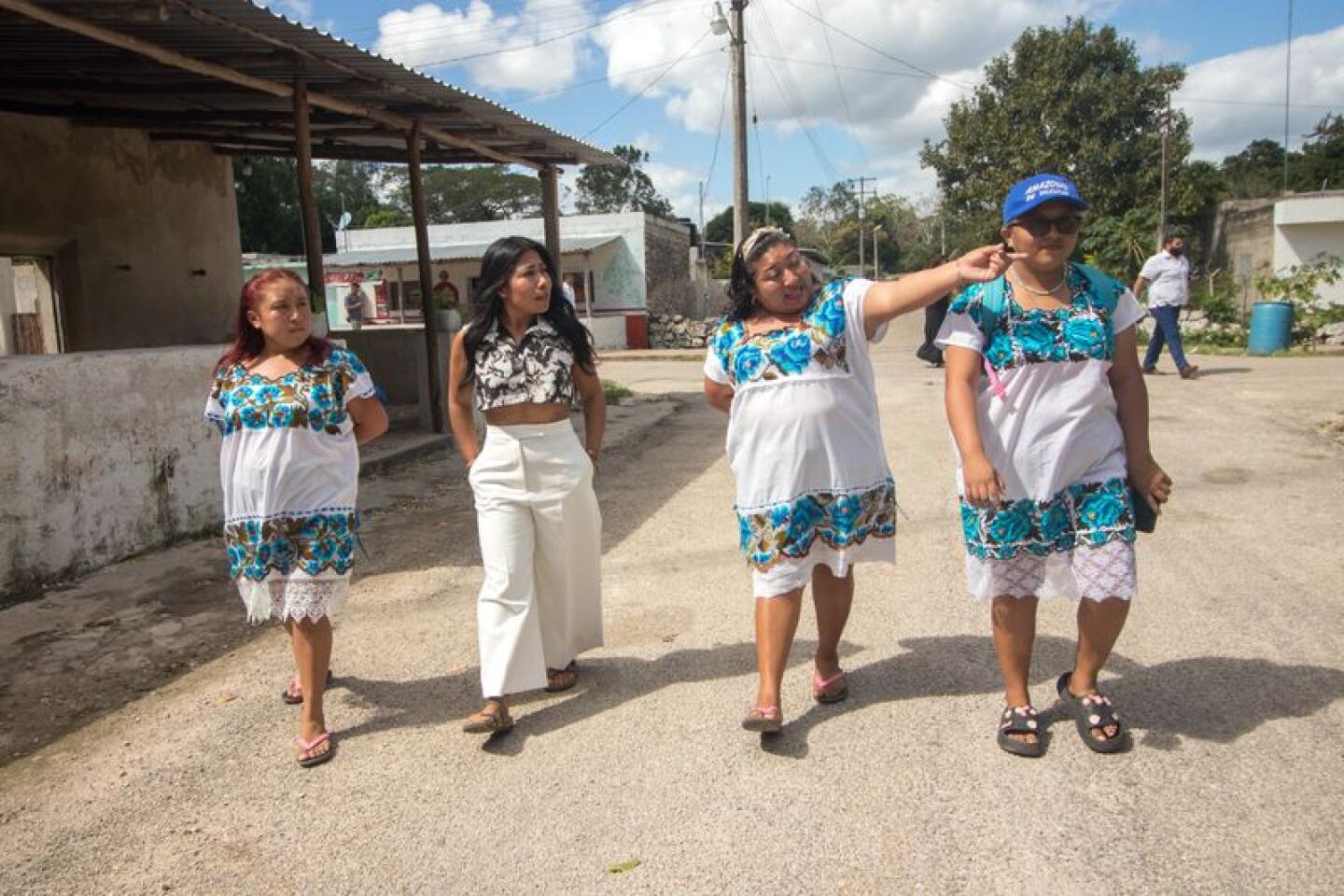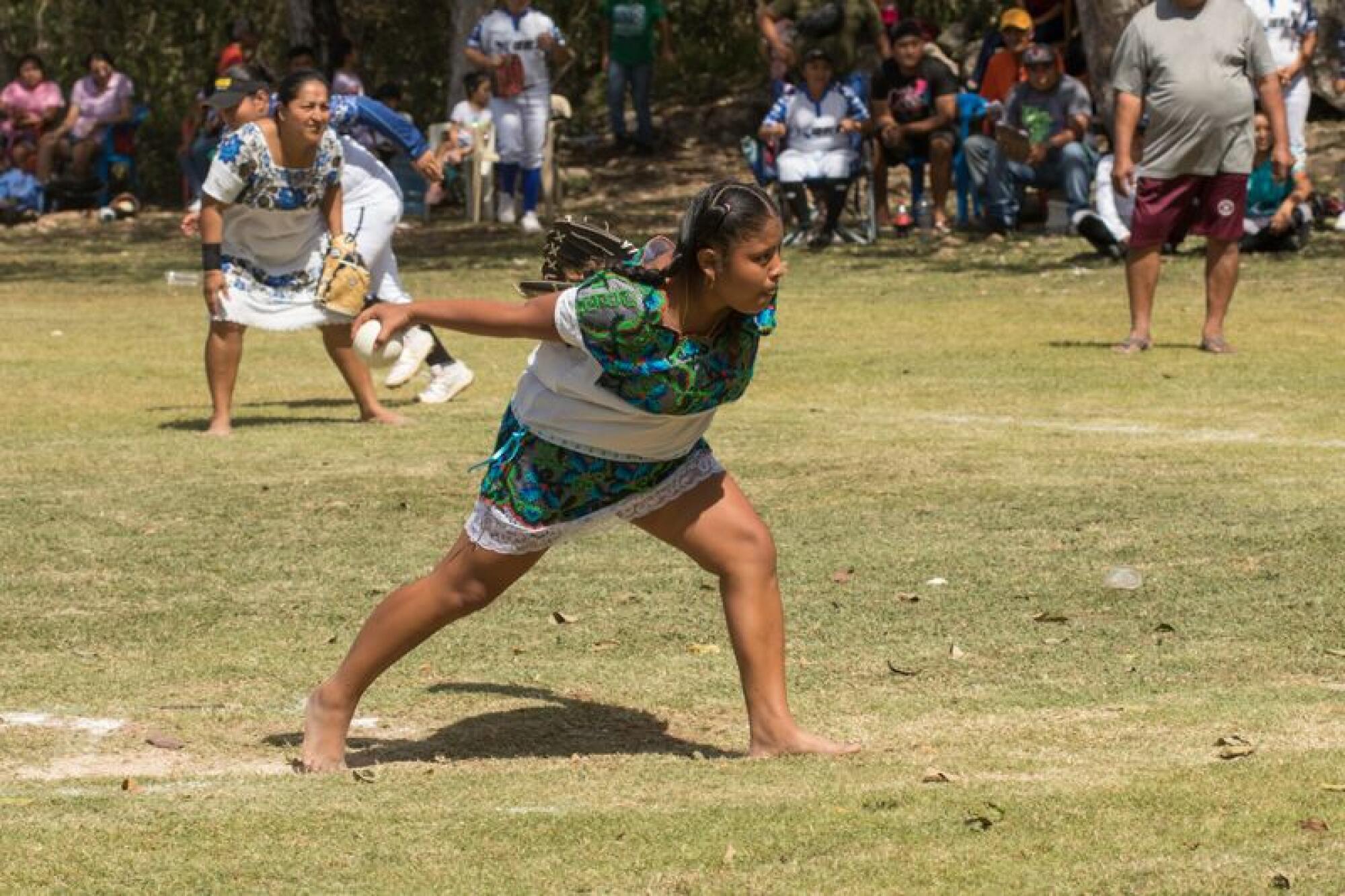
Mexican indigenous actor Yalitza Aparicio narrates an ESPN documentary highlighting an indigenous softball team in the Yucatan that has broken barriers.
YAXUNAH, Yucatán — The laughter coming from a humble home echoed in one of the empty streets of Yaxunah, a small town of about 800 in the state of Yucatán, 25 kilometers southeast of one of Mexico’s most important archaeological sites, Chichén Itzá.
A group of women had just received a surprise visit from renowned actress Yalitza Aparicio.
The Oaxacan actor burst into the show business in 2018 with the film “Roma”, a breakthrough role that made her a source of admiration among the indigenous population and beyond.
“She’s just as tall as us,” exclaimed one of the women, prompting Aparicio to laugh.
For the indigenous athletes, Aparicio, who made history by being nominated for an Oscar for her role as Cleo, was the example to follow, but the actress said she gained a lot from supporting softball players breaking down their own barriers.

La actriz mexicana Yalitza Aparicio es la narradora de un documental de ESPN sobre un grupo indígena de jugadoras de softbol que superó el rechazo de sus familiares y la sociedad al romper con el tabú social.
Las Amazonas de Yaxunah are a unique softball team comprised of Mayan women who have fought against machismo and the strict rules of their society to do what they love.
Barefoot and dressed in their traditional huipiles — indigenous skirts and blouses — Las Amazonas de Yaxunah have earned opportunities to play beyond the sandy fields of their town, delivering hits in big stadiums such as Phoenix’s Chase Field, home of the Arizona Diamondbacks.
“They are all wonderful. It’s incredible, the trajectory they have had and what they have faced to achieve their dreams,” said Aparicio in an exclusive interview with L.A. Times en Español during her visit to Yaxunah.
Aparicio’s visit with the players was organized by ESPN, which will air the documentary of Las Amazonas de Yaxunah Sunday during the Los Angeles Latino International Film Festival (LALIFF) and on all of its platforms during Hispanic Heritage Month.
Aparicio did not hesitate when offered the chance to be part of the players’ story by serving as the documentary’s narrator.
“They, even being in an indigenous community where there are more backward ideologies, had that initiative to say, ‘I like it, I want to do it,’” Aparicio said of the athletes’ determination to break with tradition and play softball. “.... They told me that they also use it to help eradicate obesity.”
María Enedina Canul Poot was the inspiration behind Las Amazonas, a team comprised of players ranging in age from 14 to 63. She was approached by the governor’s office of the municipality located on the Yucatán peninsula, which proposed different activities to help fight obesity. The government suggested Zumba classes, which includes aerobic exercise set to modern music, but Canul Poot had other plans.
She talked to several women in her town, proposing they play softball. However, Canul Poot did not expect it would cause so much discomfort among the men in the indigenous community.
“We never thought we were going to have that problem of machismo,” Canul Poot said. “I never thought that in my house I would have someone telling me not to play that kind of sport. Every time I would go out, he would say, ‘No, make tortillas for me to eat’ and he would always look for various ways to stop me from going to practice.”
The players had to push back against the expectation that indigenous women are only there to serve their husbands and families and should not expose themselves to society.
The 54-year-old pitcher had to deal with her husband’s refusal to be part of the team that Canul Poot helped create. Several of the players also experienced difficult moments, with some conflict escalating to domestic violence in which they feared for their lives.
“My daughter, her husband kicked her out of the house. But little by little, [men] realized that we are doing something, not to look for relationships with people outside of their marriage, but it was a way for people to have fun,” said Canul Poot, whose husband accepted her desire to play before he died in January 2023.
“In 2022, [my husband] started to realize that we are going to play for people to enjoy it, she said, recalling he heard people cheering while listening to the broadcast of a game the team played in Campeche.
For the first time that night, Canul Poot enjoyed a dinner that her husband had prepared for her. Moving forward, every time she went somewhere to play, he had dinner ready for her when she returned, a change she had never imagined would happen.
Her resilience, and that of the members of Las Amazonas, has struck a chord amid conversations about women’s empowerment.
As their resilience and success raised Las Amazonas’ profile, the players have received visitors curious to meet them and hear their stories. One team member noted not all the visitors have been cordial, with some only looking for “attention for themselves. There have even been some YouTubers who don’t even take pictures with the locals.”
Aparicio, who the players thought of as a celebrity, was different.
“I thought she was like all the artists, well supported and sort of above everything, but when you meet her now, you realize that she is a humble person, from the heart,” said Albi Yajaira Diaz Cano. “From the moment she arrived, she stuck with us and talked to us as if we were lifelong friends.”
During her visit, Aparicio listened to several of the stories about the obstacles the women had to overcome to achieve acceptance, which is still not complete.
“They had to face not only criticism from their families, but also from the outside, where others didn’t believe how far they could go,” said Aparicio, who had to deal with racism toward indigenous people prevalent in Mexico when she rose to fame with the role of Cleo in “Roma.”
“The tremendous strength they have to navigate against the current, it has not been easy at all. Comparing them to other stories of women who also try to venture into something different, it is not easy and what they have done is respected.”
Aparicio stressed that change is not yet complete, but she feels the attitude and ability of women softball players helped will help usher in changes.

La actriz mexicana Yalitza Aparicio es la narradora de un documental de ESPN sobre un grupo indígena de jugadoras de softbol que superó el rechazo de sus familiares y la sociedad al romper con el tabú social.
“I hope that future generations do not have to go through what we have gone through, in my aspect as a woman and as an indigenous person, which is discrimination, because of your origin, because of your skin color. Because many times they abuse you, believing that, ‘Ah well, she is indigenous. She doesn’t know how everything works, so we can take advantage of this.’” said Aparicio, 30. “They forget that we have been preparing ourselves over time so as not to repeat these situations, so that everything works out, so that people are not judged by what they see but by the results of their work.”
Aparicio said that during her childhood, she also enjoyed sports, particularly soccer. After the visit to Canul Poot’s home, Aparicio accompanied Las Amazonas de Yaxunah for a friendly match against another team in a jungle field that was set up for them to practice.
In front of fans, Aparicio threw out the symbolic first pitch before the game, although she had to do it a couple of times to get the ball into the catcher’s mitt.
“When they said, ‘Let’s see, throw the ball,’ I thought, ‘Isn’t it supposed to be kicked,’” said Aparicio while smiling.
Las Amazonas de Yaxunah developed a following beyond their village when photographer Juan Argel Sánchez Cano learned about them while working on a project about the Yucatán identity being built from “baseball and beer.”
“I came across a video of the girls swinging a bat, with little visual information, and figured out a way to contact them,” Sánchez Cano recounted. “When I found them, we met at the field and when I arrived they were already practicing. I visited them a couple of times. During the first visit, I didn’t even bring the camera, I just came to meet them and I didn’t want them to be intimidated.”
Sánchez Cano watched part of the training and at the end, he told the players that he would like to take some pictures and eventually publish them on social media. They agreed. However, after that photo shoot, Sánchez Cano waited about 10 months to publish his work.
“I knew they weren’t just any kind of photos, but I knew I had to wait for the right moment, although I didn’t know what the right moment was. ... I did know that it was going to generate all kinds of discourse, from hippies, women and all this,” Sánchez Cano said.
Posting the photos on Facebook, as he expected, the photos quickly spread and were shared on a large scale.
“They started looking for them and I was very happy, not for me as a photographer but for them because the work is theirs, for what they have achieved for their community,” Sánchez Cano said.
The road continues for Las Amazonas de Yaxunah and as more and more of the story that began six years ago becomes known, the world will become smaller and smaller, just like their village.
“The Amazonas are going to go very far, that’s in our heads, in our hearts,” said Jessica Yazmin Díaz Canú, who is one of the team’s players. “It’s going to ring everywhere. To the women, I tell them to fight for what they want, that the chains and barriers we have in front of us, let’s throw them away to reach the goals they set for themselves.”
This article was first published in Spanish via L.A. Times en Español.
More to Read
Go beyond the scoreboard
Get the latest on L.A.'s teams in the daily Sports Report newsletter.
You may occasionally receive promotional content from the Los Angeles Times.
